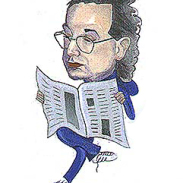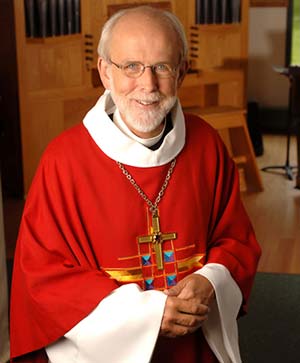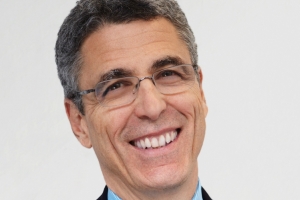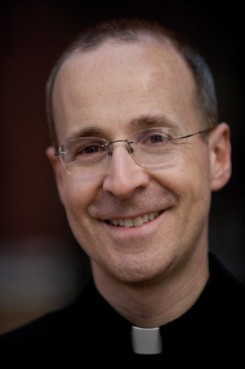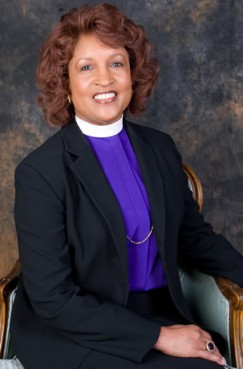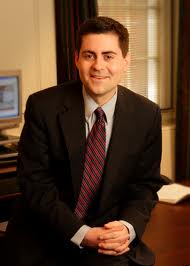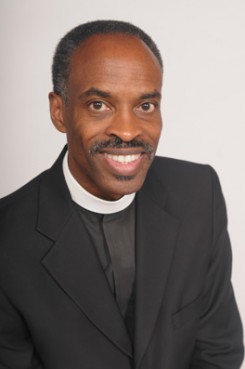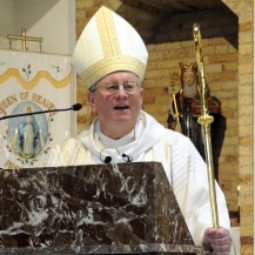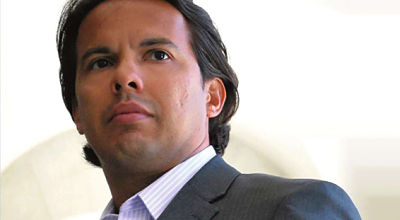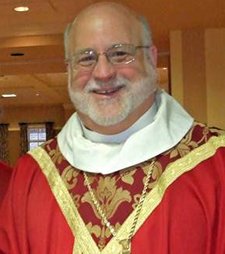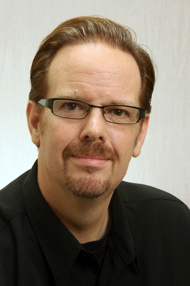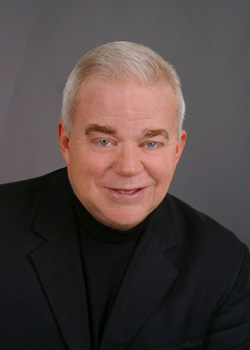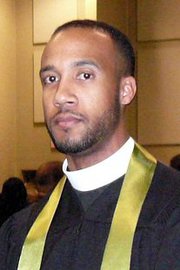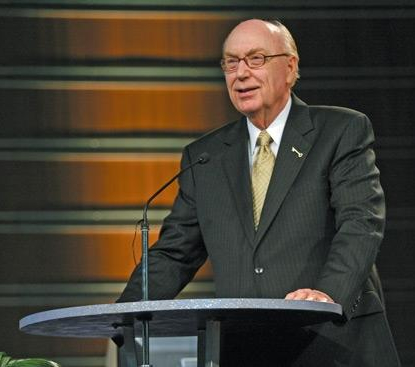As we noted yesterday, the number of Americans who have no religious affiliation has hit an all-time high, according to a new study by the Pew Forum on Religion & Public Life.
One in five adults does not belong to an organized religion. Nearly a third of Americans age 18-29 don't have a spiritual home.
“I think it goes without saying these are pretty significant changes in the American religious landscape,” said Greg Smith, a lead researcher on the Pew study.
Needless to say, this study hits home for religious leaders. So we asked a number of them why they thought so many Americans were walking away from organized religion. Their intriguing responses are below. We'll keep adding perspectives as they come in, so return here for updates, and please feel free to suggest additional sources.
Bill Aiken, director of public affairs at Soka Gakkai International – USA

The findings of this study raise as many questions as they answer. Does this movement away from organized religion parallel a movement away from other traditional forms of community? Does this represent an “atomizing” of individuals in our society, where fewer people form associations with any type of community, be it religious, civic or social? That would be disturbing.
Or is it that people are finding other less formal but more meaningful ways of establishing spiritual community? Many of these people who are not affiliating formally report that they are still engaged in spiritual pursuits, whether alone, or in less formal groups. In the SGI Buddhist community for example, our strength has been in the monthly discussion meeting, a neighborhood gathering of 10-20 people in someone’s home. The format is informal and the communication is horizontal, based on the sharing of experiences, not the vertical communication of preaching or teaching. Since these types of gatherings create opportunities for empathy, education and mutual encouragement, I’d like to think that we’re moving in that direction, and not altogether away from spiritual community. I think that would be a real loss.
The Rev. Peg Chemberlin, executive director of the Minnesota Council of Churches
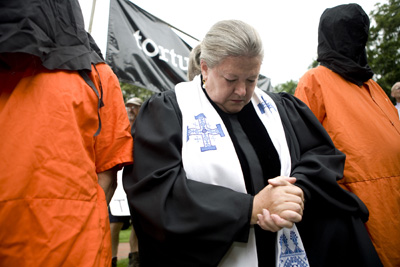
We live in the midst of individualism and privatism and the metaphor of institutions as commodities is on the rise. Increasingly congregants think of themselves as consumers of the congregations not producers of the congregation. The congregation becomes a place to receive something primarily. The staff is thought of as service providers, the pastor as personal family chaplain. Faith is a private affair lacking any responsibility for the community. This is worldview which identifies with the individual at the expense of the whole.
There is another analysis, that for the “nones” identity is not a matter of label, certainly not a denominational label. To press this generation to identify as a member of a faith group is outside of their worldview. Their worldview is broader than can be held by denominations or even faith categories. They are the product of the pluralistic world, where one identifies with the whole at the expense of the specific.
A third thought is that this generation relates differently than mine does. While we relate through institutional life, the next does not, certainly not in structures, meetings, Robert's Rules of Order, or under authority. This group relates horizontally: anyone can call an electronic gathering where presence waxes and wanes with no one caring very much. What this trend will do for the whole and for the individual is still unknown. But we are in the midst of a great experiment.
Andrew Cooper, features editor at Tricycle: The Buddhist Review
I think the most significant factor in this is the acceleration of the American ethos of individualism. As in other spheres of life, when it comes to religion, there are benefits and drawbacks to this tendency. The valuing of critical intelligence, the rejection of sectarian dogma, openness to diverse viewpoints, the ability to adapt religious practices to modern life, the affirmation of life’s spiritual dimension—these are all positive things that are related to individualism. But if unchecked, the drawbacks of individualism can be serious: social isolation, narcissism in the name of spirituality, the weakening of the bonds to community and tradition that have always provided a context for spiritual experience, the collapse of coherent social life, the promotion of the good of the individual as the primary motivating value and reality. These tendencies don’t just weaken organized religion; they undermine our capacity live meaningful lives. For all their disagreements, all religions seem to recognize that we don’t just stand apart from others; we also stand as a part of others.
Rabbi Arthur Green, rector of Hebrew College Rabbinical School

Long ago the Psalmist said of idolaters: “Eyes have they, but they see not; ears have they, but they hear not.”
Today the same may be said of our religious leaders. They look at the world through narrow lenses, each group protecting its own interests or special causes. They do not see how urgently we need a vision of this-worldly transformation, one in which religion must play a vital role. Over-consumption of resources and disregard for nature’s warnings are bringing humanity to the brink of self-destruction. All religions need to act together to build a human community that will work toward a peaceful future and a sustainable way of living. Only the re-shaping of religious vision will allow this to come about. Young people know this; the spirit of voluntarism and dedication is alive and well among them. But they see organized religion too caught up in the past, fighting the last century’s battles, blind and deaf to the needs of an ever so rapidly approaching and potentially calamitous future.
The Rev. Mark Hanson, presiding bishop of the Evangelical Lutheran Church in America
The Pew study statistics on young adults not belonging to religious organizations call me first to deeper listening to young adults. In recent weeks I have engaged young adults in conversation on college campuses, at our ELCA Youth Gathering in New Orleans and in China. There are consistent themes I hear throughout those conversations. They include the desire to be part of a religious community that begins with and is grounded in God's grace not words of judgment and exclusion. By example young adults are immersing themselves in the world particularly in communities of poverty. They are living out what we say is the calling of all the baptized – to serve our neighbor following the example of Jesus and to strive for justice and peace in all the world. They want to be fully present in the thick of life and believe that is where God calls us to live and serve. I believe young adults want to talk and learn more about Jesus. They seek to be in communities that nurture an almost insatiable curiosity about faith and life.
With young adults we are are experiencing a cultural divide – almost a chasm – that calls for bi-cultural interpreters. Emergent churches are such communities. We know have 30 staff who are under age 30 in our churchwide organization. They are bringing fresh ideas, new ways of communicating and being the church in a rapidly changing and increasingly diverse culture.
Rather than becoming disheartened by the Pew statistics I am encouraged by these clear signs of the Holy Spirit at work and by the way young adults witness to me and are leading us.
Rabbi Rick Jacobs, president of the Union for Reform Judaism
Growing numbers of Americans choosing not to affiliate with a religious institution represents a major failure on the part of those institutions. Clearly, today, Americans want, and need, to relate to a variety of institutions differently than in the past. Our churches, synagogues, and mosques have been too slow to adapt to the changes in American society. Where today young people are looking for, and even expecting, institutions to reshape themselves to accommodate their desire for greater personalization, greater variety, and greater engagement. I don’t think that these “nones,” as Robert Putnam, co-author of “American Grace” has termed them, want less engagement, they just want it in a way that is relevant to them and their lives.
And surely there are many causes for their disaffection including a sense of alienation from the bureaucratic structures and growing intolerance of too many religious communities. But I refuse to give up on them. And I don’t like the term “unaffiliated.” The term, of course, puts the onus on them. I prefer to call that group “the uninspired”; it’s our job to inspire them. We must engage in this work immediately and aggressively; we are on the verge of losing a whole generation.
The Rev. James Martin, a Jesuit priest and author of “The Jesuit Guide to (Almost) Everything”
Sadly, many young people tell me that even if they believe in God, they find organized religion not only boring and irrelevant, but corrupt and offensive. They find houses of worship with uninspired homilies and lousy music, at the same time they're reading about the crimes of sexual abuse and hearing some religious leaders saying hateful things about their gay and lesbian friends. The tragic result is that many young people are completely, and perhaps irrevocably, turned off to organized religion–and worse, to God. As one friend put it, “I didn't fall away from the church; it fell away from me.” The Pew survey should be a wake-up call to every religious leader in this country.
Terry Mattingly, religion columnist and editor of Get Religion
As the new Pew Forum numbers indicate, it's clear that debates about moral and social issues are at the heart of this matter. In effect, the doctrines common to traditional forms of faith argue that sex outside of traditional marriage is, pure and simple, sin. That is not a message that is going to play well on Comedy Central or in the classrooms and dormitories of secular universities and, truth be told, in the dormitories of some religious colleges and universities.
At this point, traditional faith is both rebellious and counter cultural, in an America redefined by the Sexual Revolution. As Bob Dylan once noted, religious believers who reject the culture have become the new “Infidels” in an era in which many people have decided they no longer need to tolerate people that they consider intolerant. This makes it easier for the young to reject organized religion, which is seen as the home of the old, out-of-date values.
Bishop Vashti McKenzie, leader of the African Methodist Episcopal Church in Texas
I think it’s going to take some deep reflection to get to the root of the issue. In many quarters of the church people have started to believe that we were missing one or two generations in our Sunday school and in our worship services. It may be that personalities have been deified and the religion has been deified instead of the one who is the central focus of our faith, which is Jesus Christ. When there is disappointment in humans and disillusionment about human failings, then people tend to be disappointed with organized religion because you have put your focus on the wrong one: I’m disappointed in human structure; I walk out of human structure without realizing I’m walking out on God.
It seems that there was a generation that came along and said, “I’m not going to make my kids go to church. I’m going to wait until they’re grown and let them make up their minds.” So the delay of starting has been a factor. I grew up in a generation that we went to church … and it was an all-day church thing.
The word of God doesn’t go out of style. We have to present it and show its relevance to each succeeding generation. They don’t have the biblical answer before they find the answer from their peers, which may not be the best answer or the right answer, in the schoolyard or the street corner.
Russell Moore, dean of the School of Theology at The Southern Baptist Theological Seminary
I am not panicked by this survey, but instead am invigorated it by it. This does not represent an eclipse of faith in America, just the dawn of some honesty.
The vague bland ooze of mainline Protestant spirituality in American society was hardly biblical Christianity. The day when joining a tame American WASPy church, out of some sense of virtuous duty, is gone, and I say good riddance. Many of those who identify as “none” now are no different from their unbelieving grandparents, except that their grandfathers would have answered the survey as “Episcopalian” or “Presbyterian” or “Baptist.”
As a Christian, I don't define the gospel in terms of ecclesial identity politics but in terms of the power of God to transform lives. The first step to a reinvigorated historic Christianity is distinguishing the real thing from the white fence Rotary club imitation of it. America is filled with people burdened with guilt, with purposelessness, with fear of death. In previous generations, some sort of nominal affiliation has served for many as a kind of dead virus vaccinating people from real Christianity. As the church confronts a self-consciously secular generation, we have the opportunity to share with them something that will seem as strange and revolutionary as it actually is: a crucified Man who is alive and upending everything. That is good news.
Ross Murray, director of Religion, Faith & Values, GLAAD

The “culture war” mentality coming from religion, especially Christianity, has chased away young believers who don’t want to get conscripted into that war. Young adults don’t want to fight about acceptance of LGBT people. They don’t want to force people to say “Merry Christmas.” Often, institutional religious leaders are caught up in battles that the younger generation doesn’t really care about, thus communicating that organized religion is not meant for young adults.
I don’t believe that the spiritual hunger of the younger generation is any less than the generations before it. They want to find a community that helpsthem discern and live out their vocation. Yet, instead of helping parishioners find where their deepest gladness meets the world’s deepest need, many religious leaders are grabbing at control and influence within society. Our religious leaders would do well to sit and listen to what gives joy, pain, worry, and sorrow to our young people, and we (because I count myself as one of those religious leaders) can help develop a faith community and practice that meets those needs.
Eboo Patel author of “Sacred Ground,” and founder and president of Interfaith Youth Core

There's no doubt that a lot of young people view religion as somewhere between irrelevant and intolerant. That's due to the combination of several factors: the rise of high profile religious violence in the world, the emergence of a strand of atheism that's openly hostile to faith, and the increased questioning of all traditions and institutions. I think this is something religious communities can do something about. We've got to present faith as inspiring, talk about the role it's played everywhere from the civil rights movement to the struggle in South Africa. There are people out there saying faith is an injection of poison or a bomb of destruction. We have to emphasize that it's the beating heart of significant social movements and a bridge of cooperation.
Staccato Powell, pastor of Grace AME Zion Church in Raleigh, N.C.
People fail to see how organized religion impacts their lives in a transformative way. Persons are seeking a return on their investment of time. The competing interests in society seem to offer more of a solution to the challenges confronting most people. The young have been conditioned by instant gratification. Organized religion appears to be more concerned with the maintenance of the institution or organization rather than ministry to the individuals who comprise the organism. However, I contend God is birthing a “new church”, which is reclaiming His original intent for the church. New church allows people to be transparent with their issues, expect transformation from the church's impact as it is transitional in intent. We are called to engage in the age old art of midwifery to facilitate the delivery of a more relevant organism which compels people, young and not so young alike, to draw near.
The Rev. Bruce Reyes-Chow, author, blogger and Presbyterian Church (USA) pastor
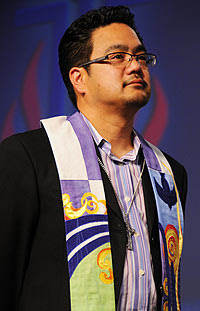
I would offer three reasons why the Protestant church has lost a generation.
1. We have failed to relinquish power. Boomers, who fought so hard to gain control of religious and secular institutions, have done exactly what they accused the generation before them of doing, talking a good game of futuring, all the while doing all they can to hold onto power and resources for as long as they can. We say we want young people to be involved in building the future, yet time and again, we do not trust them with the power to embody they change that so many have expressed they want to see.
2. We have dismissed the complexity of a generation. Previous manifestations of the Protestant church built structures and ritual as one monolithic enterprise, and for a while it worked. One style of worship met the needs of a large number of people, who yearned for common elements of faith and life. With the rise of “niche culture” the church has failed to adapt and has not figured out how to be the church that is not contingent on a single style of worship, organization structure or theological perspective.
3. We have commodified a generation. I admit that this may be slightly cynical, but when it comes right down to it, most churches who say they want to reach young adults, really want them so come to church for the sole purpose of keep the church alive. Self-preservation and impending death, will make churches say many things, but ultimately, if all churches see in young adults is money, energy and resources to be exploited, young adults will continue to flock AWAY from the Protestant church.
In the end, this report is nothing more than an affirmation of a reality that many of us have known for a very long time. The Protestant church, with a theological foundation and cultural history that is rich and meaningful, must cease gleaning our worth from the echoes of our “successful” past. Our challenges in this new day, challenging and compelling, are many, but as Protestants have believed for generations, we do not do what we do in order to earn fame, know prosperity or build kingdoms, we do what we do out of gratitude for what God has done and will do in the world. We trust. And trust in God may be the most important aspect of our faith as we move forward.
Bishop David Ricken, chairman of the U.S. Conference of Catholic Bishops' Committee on Evangelization and Catechesis
The increasing number of persons who are unaffiliated from organized religion naturally follows an anti-institution attitude going back to the war in Vietnam when distrust of the government that gave false reports on casualties morphed into distrust of any institution, church included. Since then we also have seen growing individualism, where the value of community is in decline and people think they can go it alone, without the support that comes from a church community. Spiritual values also have taken a hit in our consumerist, materialistic society as people want satisfaction now and put thoughts of a future and hereafter life on hold.
This trend does not bode well. The need for community, for people outside ourselves is timeless, as is noted in Genesis where we read that man was not meant to be alone. Regular worship impinges on our free time and makes us slow down in the almost addictive rat race. The prayerful gathering at weekend services forces us to be reflective and realize what is really important: the supportive religious community that surrounds us. It opens our hearts to hear God seeking to enter our lives. Deprived of such sustenance we run dry and face the haunting and desperate question: Is that all there is?
All religious bodies need to react with a sense of concern in the face of this phenomenon. This is not solely an American problem, however. Pope Benedict XVI recently declared a Year of Faith for Catholics, starting Oct. 11, the 50th anniversary of the opening of the Second Vatican Council and the twentieth anniversary of the Catechism of the Catholic Church. The hope is to increase Catholics’ knowledge of their religion. Pope Benedict also has called for a New Evangelization, an effort to enliven the faith of believers and to reach out to non-believers. Hopefully this will jumpstart the awareness of what faith lived out in religious communities provides us in both here the and the hereafter.
The Rev. Samuel Rodriguez, president of the National Hispanic Christian Leadership Conference and the Hispanic Evangelical Association
America's emerging generation currently finds itself in the desert of religious agnosticism. Correspondingly it's important to note that the same generation seeks a spiritual authentic journey that fills the proverbial faith void. This generation does not question the validity of the wine. This generation repudiates the idea of wineskins that lack transparency, authenticity and relationship.
For that matter, I stand convinced that the only way we can successfully engage the emerging generation with the transformative message of grace and hope is by reconciling Billy Graham's message of salvation with Dr. Martin Luther King's march for justice. This generation wants to be both vertical and horizontal. They desire to reconcile the image of God with the habits of Christ, sanctification with service, covenant with community, and righteousness with justice. They seek a faith that motivates them to raise their hands high and stretch their hands across.
Organized religion to them seems more like a bureaucratic institutional structure rather than a movement. America's emerging generation is spiritually hungry. Yet they hunger for a movement. They do not want to belong, they want to do; Do justice, love mercy and walk humbly before God.
Bishop Stacy Sauls, chief operating officer of the Episcopal Church
I always hear the distinction of “organized” or “disorganized” as being implicitly about hypocrisy. It is the cardinal sin of the church in a post-establishment world. The problem is that hypocrisy is a difficult stone to throw at someone else without accidentally hitting yourself, and I'm not sure that is really what is keeping younger people away. My own son says the issue is that church is “boring.” Maybe it's just that he's had too much of it for a lifetime. I think the issue has to do not so much with “organized” or not but with whether young adults are finding the church as a useful vehicle to engage their world in a way that is transforming to them and, ideally, someone else at the same time. It also solves the boredom problem. I think one of things we're learning is that we have to give people of any age a reason to come these days. We can't assume they're going to come just because their parents did.
Suhag Shukla, executive director and co-founder of the Hindu American Foundation

Pew’s report seems to reflect a new generation’s overall frustration with being unable to find in organized religions satisfactory answers to the big questions of life. Who am I and what is my relation to God? Why are we here? How should we treat one another? Why is there suffering? How should we treat the Earth? What’s next?
America’s growing diversity and globalization have also enabled people of all backgrounds and cultures to engage and interact with another. Any theological vilifying of “the other” based on religion, gender, or sexual orientation, which frequently occurs in more traditional, organized religions, is going to be met with resistance or loss of membership, because that “other” is a family member, a friend, a neighbor.
Lastly, greater exposure and opportunity to not only academically learn about, but experience the teachings and practices of religions that require no affiliation or are not traditionally organized, such as Hinduism (ie. yoga, meditation, kirtan, vegetarianism, etc.), may also be contributing to an increasing number of Americans being “spiritual but not religious” – and not affiliated with an organized religion.
Chris Stedman, assistant Humanist chaplain and Values in Action Coordinator for the Humanist Community at Harvard University
Why are so many young Americans walking away from organized religion? I think there are probably as many answers to that question as there are people who identify as religiously unaffiliated. To be sure, some are nonreligious because they are atheist or agnostic (12% and 17% of the religiously unaffiliated identify as such, respectively); for others, being nonreligious may be more about identity than belief. My understanding is that many young Americans have come to see organized religion as being associated with values that contradict their own, even if they share many of the central theological beliefs upheld by said religions. When 68% of the religiously unaffiliated claim to believe in a god or a universal spirit, it suggests to me that the answer is much more complex than simply saying “they stopped believing.”
As an atheist and an interfaith activist, I'm very interested in the fact that the number of nonreligious Americans is growing so rapidly, and what this means for how the religious and the nonreligious interact with one another. The fact that around 80% of the religiously unaffiliated surveyed think that religious organizations and communities play a positive role in society suggests to me that there is a real opportunity today to build greater understanding and cooperation between the religious and the nonreligious. I'd like to see more opportunities for the greater public to hear and understand the perspectives and values of the religiously unaffiliated, because even with this new study there is still so much that we don't know about them.
Ed Stetzer, vice president of Research and Ministry Development for LifeWay Christian Resources
There are many reasons why so many Americans, particularly young people, are uninterested in organized religion.
One is that the “nominals” are becoming the “nones.” In other words, those who had a nominal, name only, connection to Christianity simply are not identifying themselves that way any longer. For them, “Christian” is a category on a survey (not “Jewish” or “Hindu,” but born in America, so I must be “Christian”). With the hemorrhaging of mainline Protestantism and some of the challenges in evangelicalism, Protestants are losing what many considered their home field advantage in the United States. For many, this survey just points out who they really are– they've been “none” for a long time and checking “Christian” on a survey form makes less sense in today's secular world.
Furthermore, for many young adults, church involvement is not one or two generations away. So, why would a young adult call herself a Christian because her grandparents were active Methodists two generations ago? For many, they no longer have a religious memory– they have no childhood church experience to return to– thus, they easily answer the question of what faith, “I'm none.”
The Rev. Jim Wallis, president and CEO of Sojourners
When young people see the Gospel being lived out, when Christians are actually doing the things that Jesus taught us to do, there are two responses: first, they’re surprised, second, they’re attracted. People, and especially the young, are still very drawn to Jesus and those who follow what he taught—loving their neighbors, caring for the poor, and being peacemakers in the world. But when they don’t see that in the churches, they walk away.
The Rev. Jerry Wilkerson, pastor of Clark's Chapel African Methodist Episcopal Zion Church in Tar Heel, N.C.
Why are so many people surprised and alarmed to see a decline in the number of individuals who claim no religious affiliation?
It is absurd and somewhat asinine to say that the church (I can only speak from a Christian perspective) has put forth any real effort that would produce meaningful and lasting growth. Somehow we have become more concerned with the protection of the institution (the four walls, and its programs) than the impacting of the individual. What has been passed down throughout the generations is no longer transformative or transparent. If I were thirsty and were taken to a well, you could convince me to drop my bucket in the hopes of satisfying my thirst. However if that well has no water, how are you going to get me back to that same well? And even I came to that well, what would make me once again drop my bucket? If it had no water the first time, why would it have any the second?
Young adults are growing tired of going to wells that offer no water. Many are realizing the need for something real, and relevant; something authentic that can speak their existence, hopes, and fears.
George O. Wood, superintendent of the Assemblies of God
There are as many answers to this question as there are religiously unaffiliated people. Each of them has reasons for their lack of interest in organized religion. But it’s important to remember that being religiously unaffiliated is not the same thing as being unreligious or antireligious. According to Pew, 68 percent of the religiously unaffiliated believe in God or a universal spirit. Eighteen percent describe themselves as “religious,” and 37 percent describe themselves as “spiritual but not religious.” One in five (21 percent) pray daily.
For whatever reason, their spiritual longings have not led them to religious affiliation. Pew suggests that this may be because of a political backlash against the religious Right, which conflated Christianity and conservative politics. It may be a result of age and stage: The religiously unaffiliated are younger and more likely to be single than the general population. Or perhaps it’s because healthy, wealthy societies tend to be secular—a tendency John Wesley warned against in his sermons.
Whatever the reason for the rise of the religiously unaffiliated, American churches have their work cut out for them in the next few decades. We need to proclaim the gospel in word and deed, showing the truth of our message by the depth of our love for others. If the religiously unaffiliated saw James’s pure and undefiled religion at work, I like to believe they’d give a second thought to following Jesus Christ in the context of a faithful community.





